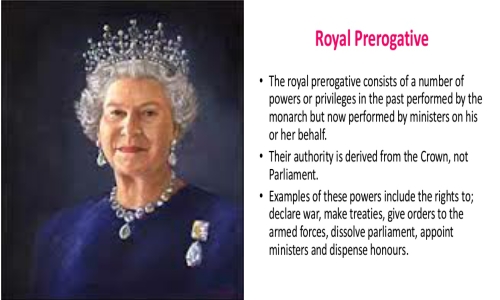by Andrew Brons
 The decision of the Divisional Court on the perceived necessity of Parliament to agree to the decision to invoke Article 50 of the Lisbon Treaty seems to have been based on the undeniable truth that the Royal Prerogative cannot be used to repeal legislation passed by Parliament. Whilst that is undeniably true, it is irrelevant.
The decision of the Divisional Court on the perceived necessity of Parliament to agree to the decision to invoke Article 50 of the Lisbon Treaty seems to have been based on the undeniable truth that the Royal Prerogative cannot be used to repeal legislation passed by Parliament. Whilst that is undeniably true, it is irrelevant.
When Britain joined (what was) the European Economic Community, there were two distinct stages or processes. The Prime Minister, Edward Heath signed the Treaty of Accession on 22nd January 1972. However, the European Communities Bill was published four days later on 26th January 1972 but was not debated in the Commons until 15th February 1972, followed two days later by the vote on the Second Reading.
There had been a vote in the Commons on the principle of joining the EEC, on 28th October 1971 but that was not a constitutional requirement. The exercise of the Royal Prerogative does not require Parliamentary consent.
The process of invoking Article 50 does not pretend to have any immediate effect on the status of the European Communities Act 1972 or on any EU legislation. That can be effected only by Parliament or, in the case of delegated legislation implementing a directive, the designated legislator.
Invoking Article 50 is analogous to the signing of the Treaty of Accession. It is, if you like, the unsigning of that Treaty. The Government might, out of courtesy, grant a debate and even a vote on it, before the decision is taken, but it is not under an obligation to do so.
The signing of the most recent EU treaty, the Lisbon Treaty, took place on 13th December 2007, by the Prime Minister, Gordon Brown, in the European Council. The European Union (Amendment) Bill was debated in the House of Commons on 21st January 2008.




This awful Government should have unilaterally withdrawn Britain from both the EU & ECHR instead dithering May has continued to dishonestly hold on until 19/3/17 Our Country must wake up now and throw Out the failed LIBLABCON now the EU is doomed.